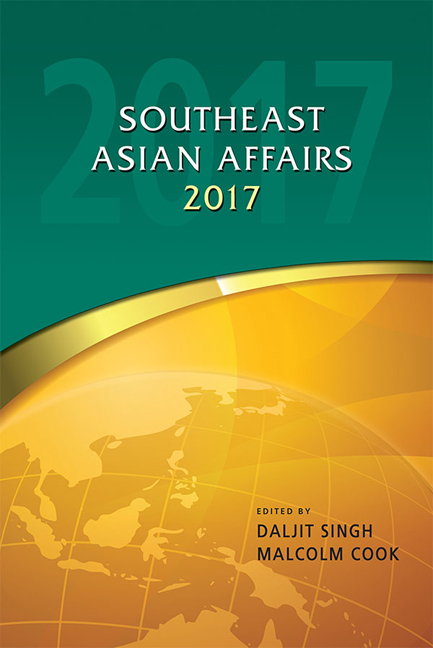The 2016 Leadership Change in Vietnam and Its Long-Term Implications
from VIETNAM
Published online by Cambridge University Press: 12 January 2018
Summary
On 27 January 2016, the 12th Central Committee of Vietnam's ruling Communist Party (VCP) re-elected the seventy-two-year-old Nguyen Phu Trong as its General Secretary, breaking the rule that limits the age of candidates for this position to sixty-five. More strikingly, Trong's rival in the race to this top post was Prime Minister Nguyen Tan Dung, who has been perhaps, as a country expert has noted, “Vietnam's most powerful politician over the past thirty years, since the demise of General Secretary Le Duan.” Unlike any previous contenders to this job, Dung fought until the last minute, reportedly gathering nomination votes from nearly twenty per cent of the delegates of the 12th VCP Congress, which elected the Central Committee on 26 January. However, the fate of this contest was substantially sealed five weeks earlier, at the 13th Plenum of the 11th Central Committee (14–21 December 2015). Following this momentous event, the 14th Plenum, held one week before the 12th Congress, finalized the 11th Central Committee's recommendations for the top posts in the party-state: General Secretary Nguyen Phu Trong would stay party chief, Minister of Public Security Tran Dai Quang was named the next state president, Deputy Prime Minister Nguyen Xuan Phuc the next prime minister, and Vice-chair of the National Assembly Nguyen Thi Kim Ngan the next National Assembly chair. A few months later the National Assembly would formally appoint the three individuals to these posts for the next five years.
The 11th Central Committee also prepared the lists of nominees from which the 12th Congress and the 12th Central Committee respectively would select a two-hundred-strong new Central Committee (which is the 12th CC) and a nineteenstrong new Politburo. In Vietnam's party-state, the VCP Central Committee is the country's highest decision-making body between the Party Congresses, while the Politburo takes on this role when the Central Committee, which meets about twice a year, is not in session. As “the Party leads and the State manages” (Đảng lanh đạo, Nha nước quản ly) in this party-state, the Party General Secretary is the supreme leader of the country and the Commander-in-Chief of the military, even though the titular head of state is the State President, who is empowered by the Constitution to have the highest command (thống lĩnh) over the armed forces.
- Type
- Chapter
- Information
- Southeast Asian Affairs 2017 , pp. 421 - 435Publisher: ISEAS–Yusof Ishak InstitutePrint publication year: 2017

